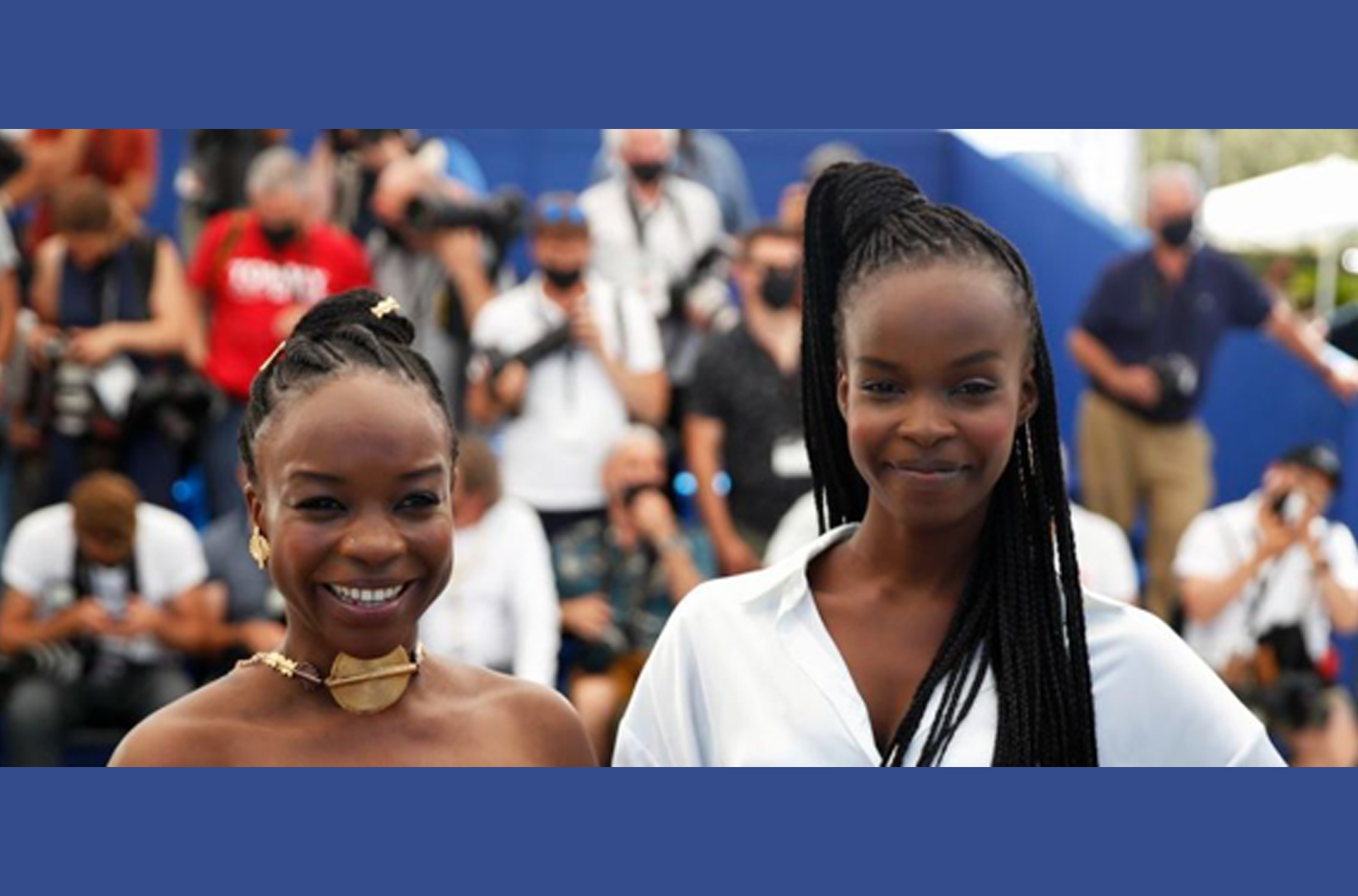
Top image: Actresses Achouackh Abakar and Rihane Khalil Alio
Well-known Chadian film director Mahamat-Saleh Haroun had been missing for a few years in the landscape of African cinema but has again this year entered the competition for the Palme d’Or in Cannes with a new film“Lingui, les ties sacrés” (Solidarity, the sacred bonds).
In 2016, he had become involved in politics with a film about the courageous and determined fight of an association of victims of the dictatorship to obtain redress after abuses suffered in the 1980s. He was appointed Minister of Culture, Tourism and Handicrafts at the beginning of 2017, but this experience concluded with a somewhat forced resignation after only a year. It was then that Haroun decided to write the screenplay of the current film and return to shoot it in Chad with a cast recruited on the spot.
The film tells how single mother Amina’s life is about to fall apart when she finds out that her 15-year-old daughter Maria, a college student, is pregnant. Maria, a victim of a rape she does not want to speak about, intends at all costs to have an abortion despite the reluctance of her mother, who was herself rejected by her family as a single mother, and who reminds Maria of the religious and legal prohibitions against abortion, and their lack of resources to pay for an procedure that is not only risky but also very expensive. Mother and daughter live together in a suburb of N’Djamena, the capital of Chad, and in the film, they test the limits and the virtues of lingui – solidarity.
The film received strong applause during its official presentation at the Cannes Palais des Festivals, described as a film of “great beauty, very simple, and an austere subject treated in a sober and frontal way”. It is the only film from sub-Saharan Africa in competition after more than half a century without a winning film in Cannes for Africa. There has been only one Palme d’Or for an African film so far, in 1967, when Mohammed Lakhdar-Hamina won for Chronicle of the Years of Embers about a peasant’s migration from his drought-stricken village to his participation in the Algerian resistance movement.
The Jeune Afrique journalist who wrote the article asked Haroun: “From the start, your cinema revolved around themes such as failing fathers, exile and war. Now a complete change with Lingui, a film with women, with a mother and her daughter at the centre of the story. Was it the influence of current times, of #MeToo?”
Haroun replies: “I moved on to something else, to women. To responsible and conscious mothers, above all. But my scenario dates from before #MeToo. Moreover, the questions raised by this movement refer to situations that Chadian women have been experiencing for many years. Ever since a state has existed in Chad. Especially with regard to abortion. Before that, women had always been able to manage to terminate unwanted pregnancies. But when they found themselves confronted with a State, a neo-colonial State, since it must be called by its name, they have had to face a political power which prohibits abortion with severe laws and also face people and a society that wants to deprive women of their freedom to choose.
“It is a subject of permanent interest in Chad, where there are many stories reminiscent of the one Lingui tells. It is even now a well-established subject, because the press is talking about it. We find fetuses that were got rid of, there are newborns that are abandoned. You should know that in Chad, young girls do not receive any sex education. And when they get pregnant, they are seen as the ones at fault, as dishonouring their family. So they have to eliminate the problem in some way. For those who choose abortion, obviously illegal, it often ends in tragedy. This is why I wanted to deal with this subject.”
The journalist remarks: “The film is very beautiful, its aesthetics are very neat, the light very present, which contrasts with the subject, which is rather dark. A contrast sought to arouse emotion?”
Haroun replies: “I believe that in this film, it is the subject, the substance, that makes the form. So I looked for this contrast. I wanted to show the heroic face of these two women, and women in general. There is something for me in this story which must appear as a journey towards the light. It is the characters who make things bright and thus become luminous themselves. This is what we tried to translate through the staging and the photography.”
[The interview continues – worth reading.]
SOURCE: Jeune Afrique, by Renaud de Rochebrune, 9 July 2021 (en français) ;
SEE ALSO: Cable Chronicles, by Michaela Cabrera, Sarah White, 9 July 2021 (en français) + PHOTO by Gonzalo Fuentes/Reuters



